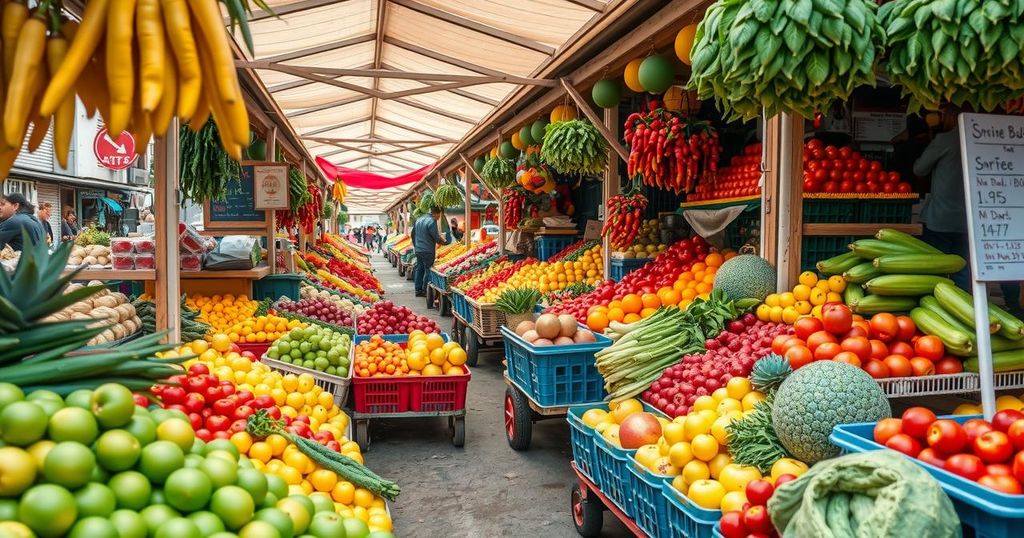Tanzania’s inflation increased to 3.2% in February 2025, driven by higher food prices, including rice and finger millet. The overall Consumer Price Index rose by 0.6%. The government has urged traders to avoid price hikes during Ramadan, while fuel prices also surged due to global market trends and currency fluctuations.
Tanzania experienced a modest uptick in inflation, primarily influenced by escalating food prices. The National Bureau of Statistics (NBS) reported that the inflation rate rose to 3.2 percent in February 2025, up from 3.1 percent in January. This increase reflects the pressures on the Consumer Price Index (CPI), which saw a 0.6 percent rise between the two months.
Significant price hikes were observed in essential food staples: rice increased by 3.8 percent, finger millet by 10.1 percent, and maize grains by 1.8 percent. Moreover, the prices of sorghum flour, maize flour, and fresh beef also registered increases of 4.0 percent, 2.6 percent, and 0.8 percent, respectively. Other food items such as cooking oil (2.4 percent), fruits (2.6 percent), and groundnuts (4.9 percent) also contributed to the overall inflation.
The spike in food prices has been partially attributed to heightened demand in anticipation of Ramadan, a period marked by changes in food consumption due to fasting and traditional feasts. In light of these developments, Prime Minister Kassim Majaliwa has called on traders to refrain from unjustifiably raising prices during this significant period.
Inflationary pressures have also impacted the energy sector, with the Energy and Water Utilities Regulatory Authority (Ewura) announcing higher fuel price caps for March. Petrol in Dar es Salaam now costs Tsh2,996 ($1.03) per liter, a 6.27 percent rise from February. Diesel and kerosene have also seen substantial price increases of 6.73 percent and 12.02 percent, respectively.
Ewura’s Director General, James Mwainyekule, indicated that the fluctuations in fuel prices are due to global market trends and currency variations, underscoring the broader economic challenges facing Tanzania.
In conclusion, Tanzania’s inflation rate has experienced a slight rise, primarily driven by increased food prices and higher fuel costs. The pre-Ramadan demand for food items has prompted significant price increases in essential staples. Additionally, rising energy costs further contribute to inflationary pressures. Authorities are urged to monitor these changes carefully to mitigate the impact on consumers, particularly during high-demand periods such as Ramadan.
Original Source: www.zawya.com




